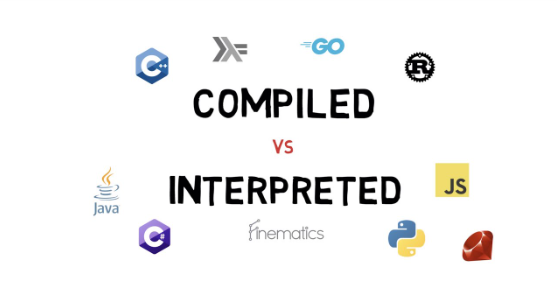Understanding the Key Differences Between Compilation and Interpretation
 Alok Gupta
Alok Gupta
Introduction:
When learning about programming languages and how they work, it's essential to understand the fundamental processes that convert high-level language (HLL) code into machine-level language (MLL) code. These processes are known as compilation and interpretation. While both serve the purpose of translating HLL code into MLL code, they do so in distinct ways. Let's explore the basic differences between compilation and interpretation, and then we'll summarize these differences in a tabular form.
Compilation
Compilation is the process of converting the entire HLL code into MLL code at once. This conversion is done using a software tool called a compiler. The compiler reads the entire source code, translates it into MLL, and generates an executable file that can be run on the machine. Some key aspects of compilation include:
Entire HLL Code in MLL in One Go: The compiler processes the entire code at once, producing a complete machine-language program.
Process of Execution is Faster: Once compiled, the executable code runs faster because the translation from HLL to MLL has already been done.
Debugging is Difficult: Since the entire code is compiled before execution, errors are only detected after the compilation process, which can make debugging more challenging.
Intermediate Codes are Generated: Compilers often generate intermediate code before the final machine code, which helps in optimization.
Executable Code Storage: The compiled MLL code (executable file) is stored on the hard disk and can be executed multiple times without needing recompilation.
Examples: Languages that typically use pure compilation include C, C++, C#, etc.
Interpretation
Interpretation, on the other hand, translates HLL code into MLL code line-by-line. This is done using a software tool called an interpreter. The interpreter reads each line of the source code, translates it, and immediately executes it. Key characteristics of interpretation include:
Line-by-Line Execution: The interpreter processes and executes the HLL code one line at a time.
Slower Execution: Execution tends to be slower since each line of code must be translated every time the program runs.
Easier Debugging: Errors are detected and reported line-by-line, which can simplify the debugging process.
No Intermediate Codes: Interpreters typically do not generate intermediate code or an executable file.
No Executable Code Storage: Since there is no compiled executable file, the source code must be interpreted every time it is run.
Examples: Languages that typically use interpretation include Python, Ruby, Perl, JavaScript, etc.
Tabular Comparison
Here's a side-by-side comparison of compilation and interpretation:
| Aspect | Compilation | Interpretation |
| Conversion Process | Converts entire HLL code into MLL code in one go. | Converts HLL code into MLL code line-by-line. |
| Execution Speed | Generally faster, as the entire code is precompiled. | Generally slower, as each line is translated and executed one at a time. |
| Debugging | Errors detected after entire code is compiled, making debugging more challenging. | Errors detected line-by-line, making debugging easier. |
| Intermediate Codes | Often generates intermediate code before final MLL. | Typically does not generate intermediate code. |
| Executable Code Storage | Creates an executable file stored on the hard disk. | No executable file is created; code needs to be interpreted every time. |
| Examples | C, C++, C#. | Python, Ruby, JavaScript. |
Conclusion
Understanding the differences between compilation and interpretation helps in choosing the right programming language and tools for specific tasks. Compilation offers faster execution and the convenience of executable files, while interpretation provides easier debugging and flexibility in code execution. Knowing these differences ensures that developers can make informed decisions based on their project requirements and constraints.
Subscribe to my newsletter
Read articles from Alok Gupta directly inside your inbox. Subscribe to the newsletter, and don't miss out.
Written by

Alok Gupta
Alok Gupta
I’m an aspiring web developer keen on learning new things. I’m dedicated to keeping up to date with the latest stuffs in web development. I always lookout for chances to grow and learn. When I’m not coding, I enjoy reading about India’s fascinating history. It helps satisfy my curiosity and teaches me about the diverse India.